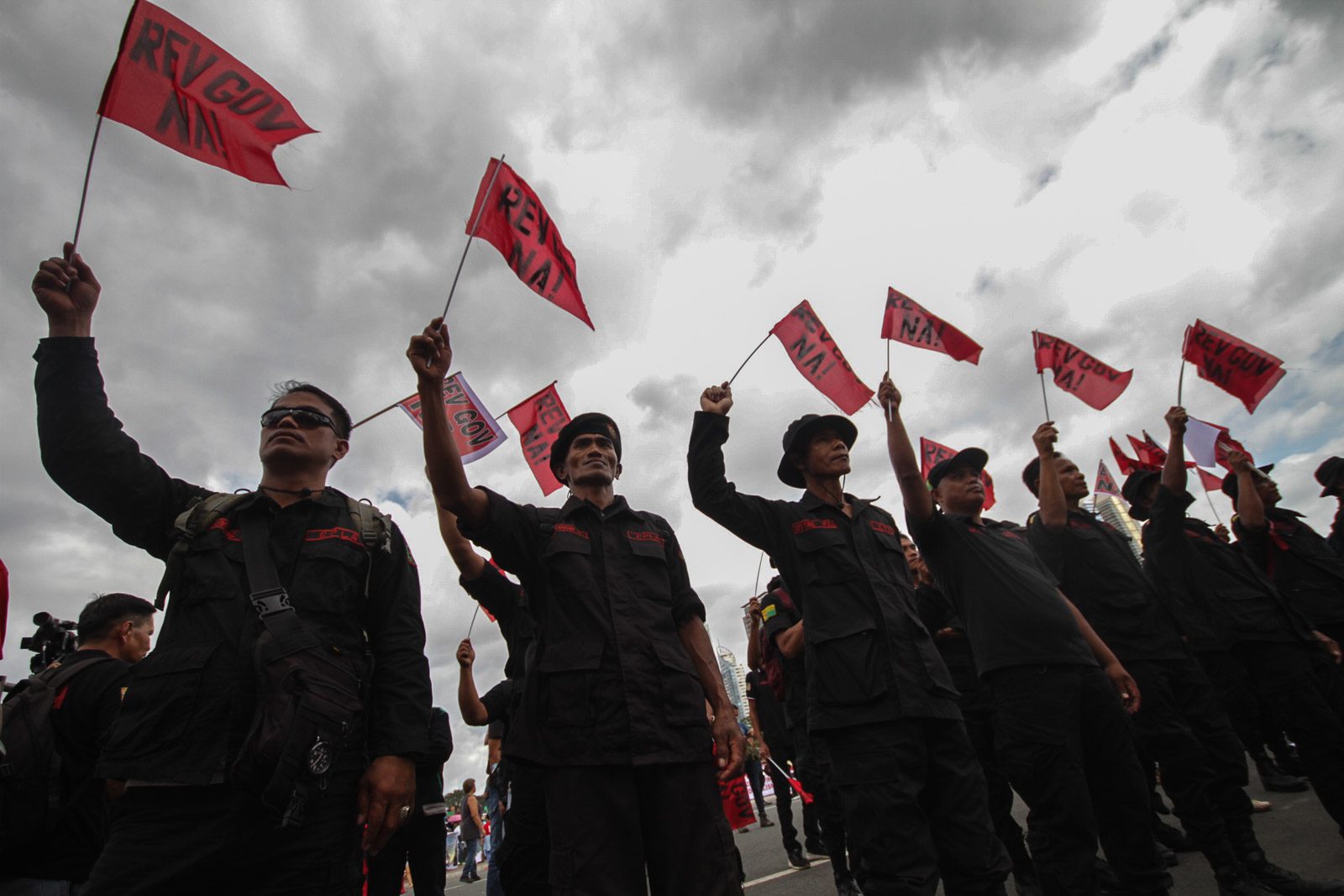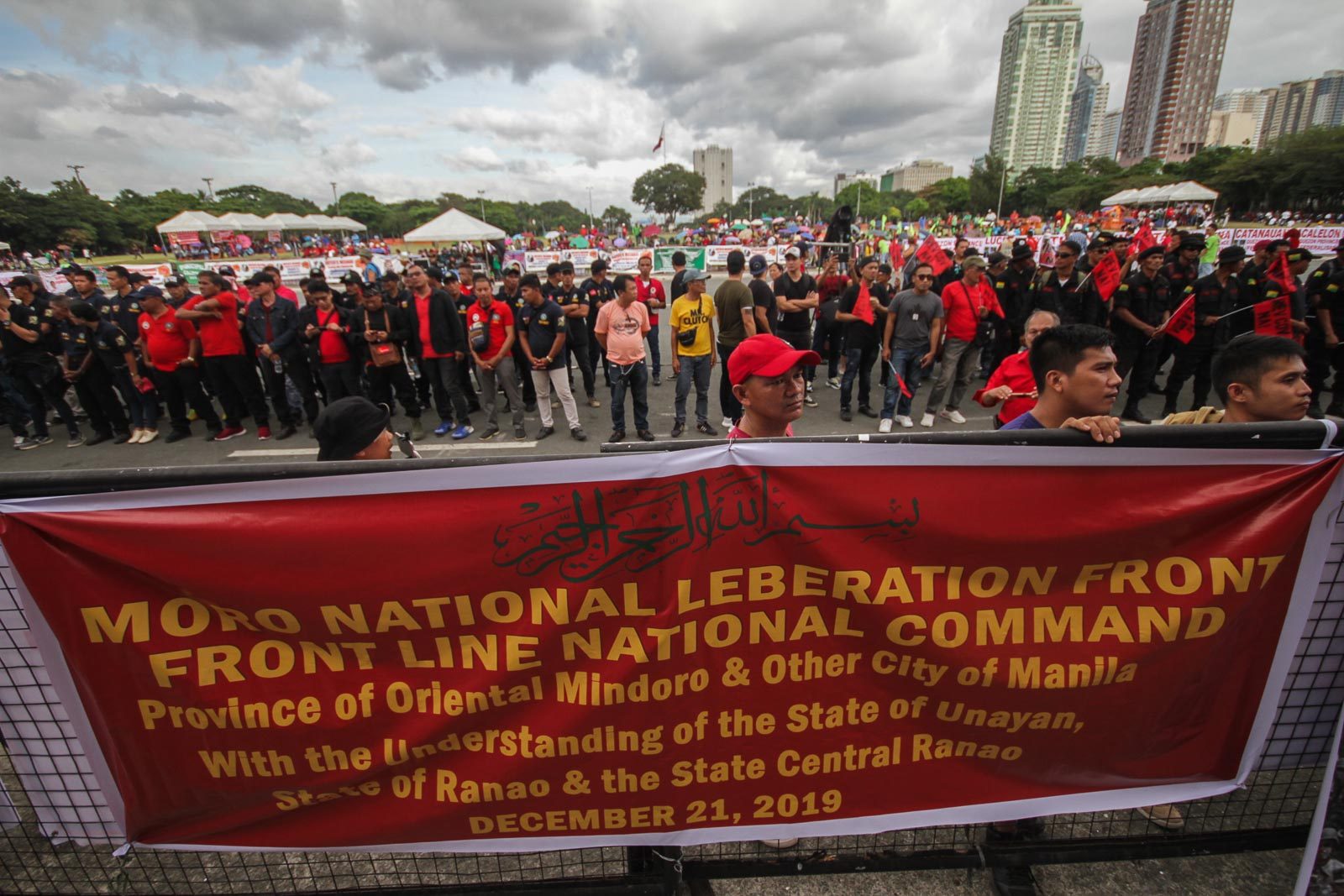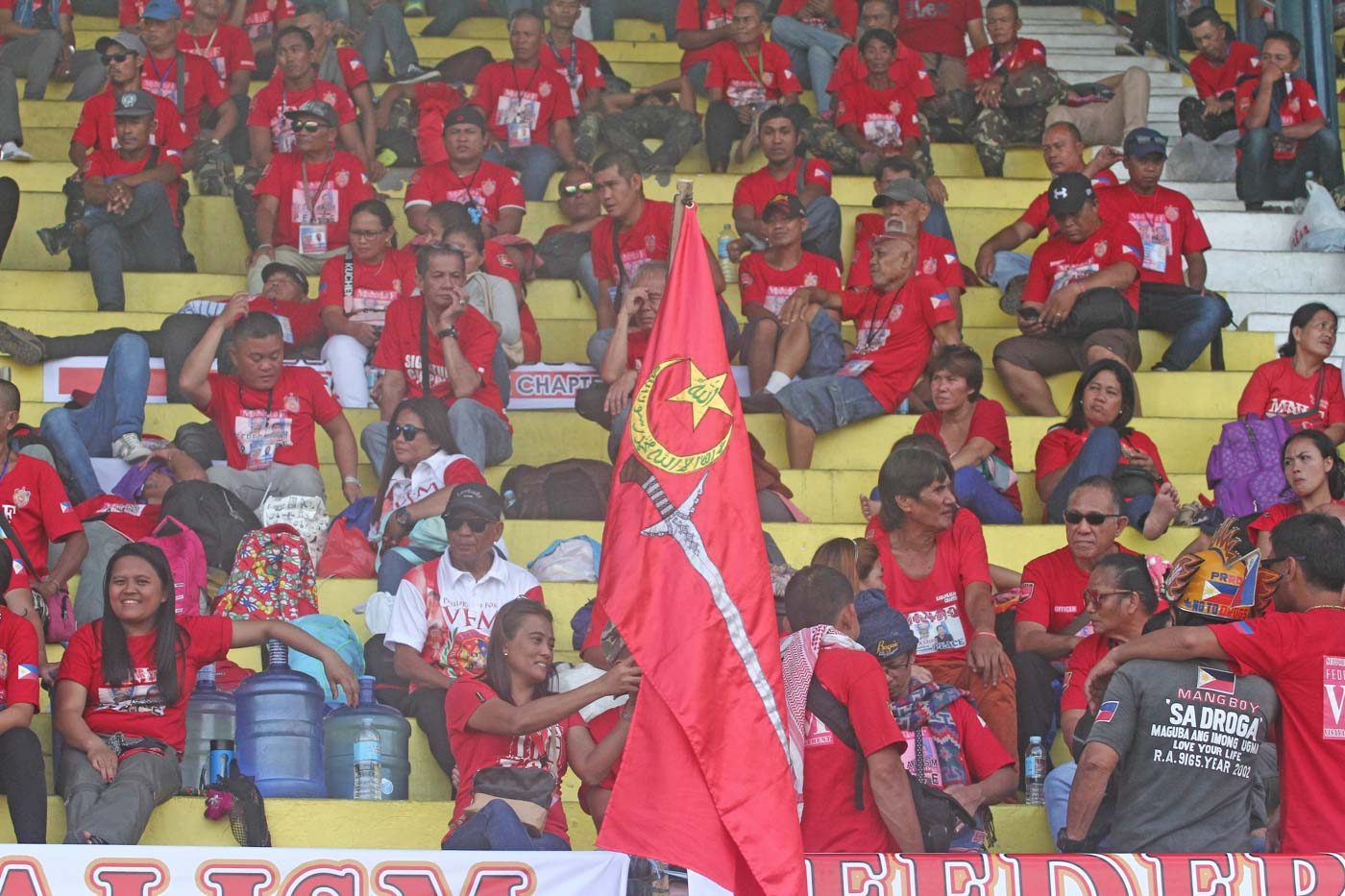SUMMARY
This is AI generated summarization, which may have errors. For context, always refer to the full article.

MANILA, Philippines – Hundreds of supporters of President Rodrigo Duterte gathered in separate areas in Manila and Cebu on Saturday, December 21, to urge the Chief Executive to declare a revolutionary government and quickly set up a federalist system.
At the Quirino Grandstand in Manila, members of the Moro National Liberation Front (MNLF) and Cordillera People’s Liberation Army wearing combat overalls carried flags and tarpaulins exclaiming “RevGov Na! (RevGov Now!)”
The two former rebel groups had entered into previous peace agreements with past presidents, the MNLF with the Ramos adminstration and the CPLA with the Cory Aquino government.
In Cebu, hundreds of supporters flocked to the Cebu City Sports Complex to show support for the same agenda: for Duterte to declare a revolutionary government and break up the country into federal states. They waved an MNLF flag and a Philippine flag throughout the event.
Why RevGov? Supporters have been calling for Duterte to declare a revolutionary government as early as 2017, after the frustrated President said in an August 2017 speech that only through overhauling the current system could the country “go up.” (READ: Can Duterte declare a revolutionary gov’t? Here’s what you need to know)
A revolutionary government means collapsing all branches of government and throwing out the Constitution in favor of building a system as seen fit by the revolution’s leader – in the case of the supporters’ vision, President Duterte.
For many of his supporters, the declaration would fit perfectly into his ambitious campaign promise of “changing” the Philippines, most notably by stopping crime and drugs, curbing corruption, and freeing up traffic in just a matter of months.

Why the MNLF support? MNLF’s founder Nur Misuari is a staunch supporter of Duterte’s federalism project, which has so far been at a standstill in Congress. With a revolutionary government, Duterte can pursue the system change without the scrutiny of a Congress.
Misuari and Duterte are longtime friends and allies. A faction of the MNLF, the Jikiri faction, is part of the Bangsamoro Transition Authority, the interim government of the newly formed Bangsamoro Autonomous Region in Muslim Mindanao or BARMM.
Misuari has also recently been appointed as Duterte’s economic envoy to the Organization of Islamic Cooperation.
Will Duterte do it? President Duterte has so far only teased about his intentions.
In one instance, he said it would not lead to any gains for the country. In another, he said it would be necessary to thwart any attempt at destabilizing his government.
Legal scholars and critics have pointed out that Duterte need not throw out the current system to fix persistent problems. Instead, he could just invoke emergency powers, which are far less prone to abuse.

– with a report from Ryan Macasero/Rappler.com
Add a comment
How does this make you feel?
There are no comments yet. Add your comment to start the conversation.